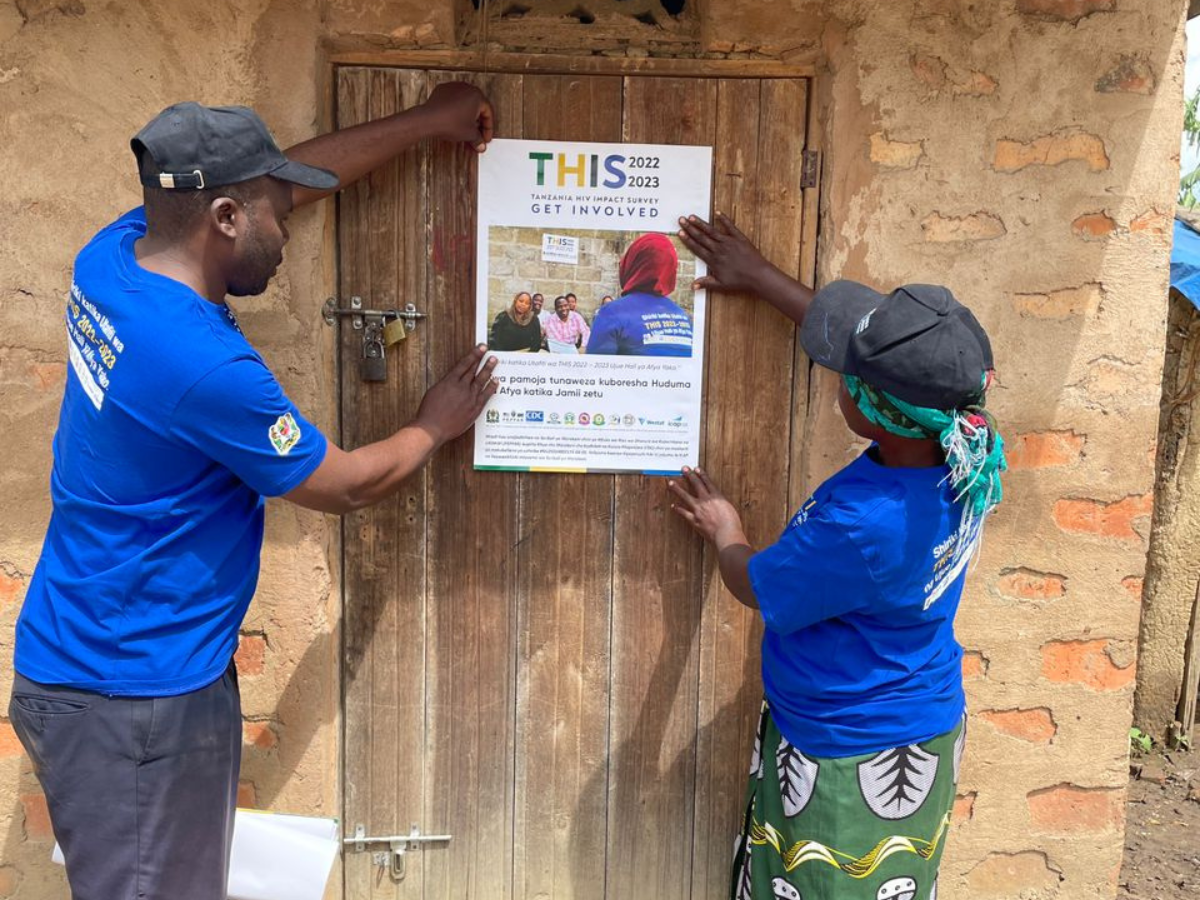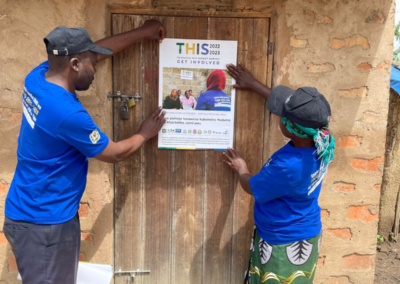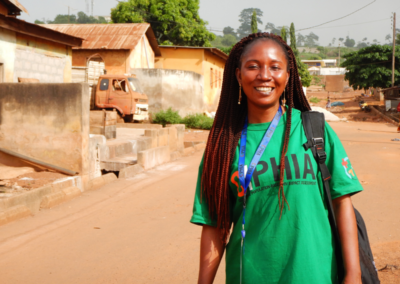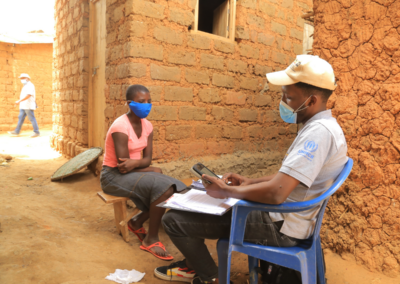In Tanzania, summary results from a second Population-based HIV Impact Assessment (PHIA) demonstrates that the country has met the second of the three UNAIDS 95-95-95 targets ahead of the 2025 goal date.
The overall summary results from Tanzania HIV Impact Survey 2022-2023 (THIS 2022-2023) were released on World AIDS Day, December 1, 2023.
THIS 2022-2023 survey teams interviewed and conducted HIV testing for 34,000 people in 31 regions of both Mainland Tanzania and Zanzibar to assess national progress toward HIV epidemic control. Country progress is measured against the UNAIDS 95-95-95 goals – that 95 percent of people living with HIV know their status, 95 percent of people aware of their HIV-positive status are on antiretroviral treatment (ART), and 95 percent of people on ART are virally suppressed. THIS 2022-2023 results are crucial for understanding progress that has been made since the first PHIA conducted in Tanzania between October 2016 and August 2017 (THIS 2016-2017).
THIS 2022-2023 demonstrated that 82.7 percent of adults living with HIV were aware of their HIV-positive status, 97.9 percent of adults living with HIV were on ART, and 94.3 percent of adults who were on ART had viral load suppression. These findings show marked progress since THIS 2016-2017, and meeting the second UNAIDS 95-95-95 target in Tanzania demonstrates access to robust HIV treatment programs among those who are aware of their HIV-positive status.
“These findings underscore the importance of developing tailored approaches to addressing the complex factors that drive HIV transmission, case finding, and treatment adherence,” said Deogratias Morice Kakiziba, THIS 2022-2023 project director.
THIS 2022-2023 findings highlighted some gaps in HIV epidemic control in Tanzania – for example, variations in HIV prevalence by age, sex, and region. The results demonstrated a higher HIV prevalence among women and in certain regions of mainland Tanzania, including Mbeya, Iringa, and Njombe. Additionally, men and younger adults were less likely to achieve viral load suppression than women and older individuals.
“Population-based HIV Impact Assessments are of great value, helping paint a more accurate vivid picture of the HIV epidemic in different countries,” said Wafaa El-Sadr, MD, MPH, MPA, ICAP founder and director. “These survey findings inform countries where to focus their efforts and resources as they seek control of their HIV epidemics.”
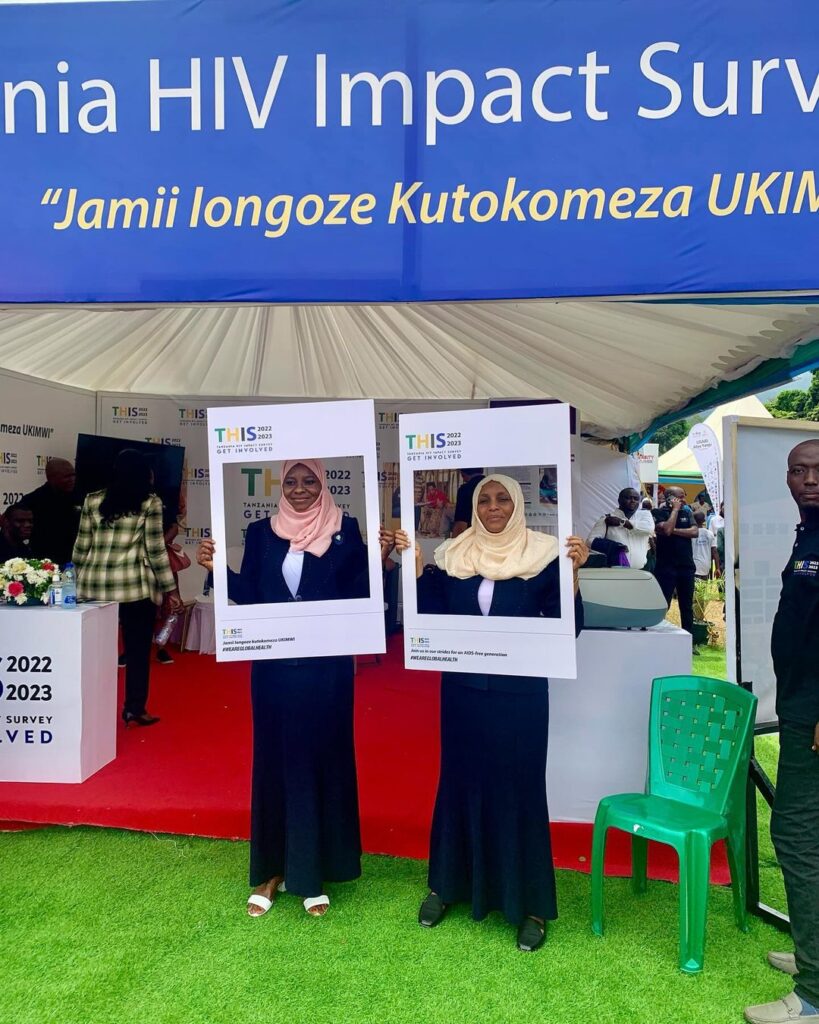
THIS 2022-2023 summary results were released on the 2023 World Aids Day.
Prior to THIS 2022-2023’s launch, ICAP supported intensive training for all field teams in such capacities as laboratory procedures, quality control protocols, data collection procedures, and ethics to ensure survey quality. Over 1,000 community mobilizers introduced the survey to community, religious, and cultural leaders to build trust across communities, ultimately helping to recruit 17,300 consenting households. Sixty-five teams of 538 survey staff were deployed to 566 enumeration areas, which enabled data collection for the survey to be conducted in just four months.
Supported by the U.S. President’s Emergency Plan for AIDS Relief (PEPFAR), with technical assistance from the Centers for Disease Control and Prevention and ICAP at Columbia University, the THIS 2022-2023 was led by the Government of the United Republic of Tanzania through the Tanzania Commission for AIDS, the Zanzibar AIDS Commission, and the Ministries of Health of the United Republic of Tanzania and the Revolutionary Government of Zanzibar. The National Bureau of Statistics, the Office of Chief Government Statistician in Zanzibar, the National AIDS Control Programme, and the Zanzibar Integrated HIV, Hepatitis, Tuberculosis and Leprosy Program implemented THIS 2022- 2023.
About ICAP
A major global health organization that has been improving public health in countries around the world for two decades, ICAP works to transform the health of populations through innovation, science, and global collaboration. Based at Columbia Mailman School of Public Health, ICAP has projects in more than 40 countries, working side-by-side with ministries of health and local governmental, non-governmental, academic, and community partners to confront some of the world’s greatest health challenges. Through evidence-informed programs, meaningful research, tailored technical assistance, effective training and education programs, and rigorous surveillance to measure and evaluate the impact of public health interventions, ICAP aims to realize a global vision of healthy people, empowered communities, and thriving societies. Online at icap.columbia.edu






